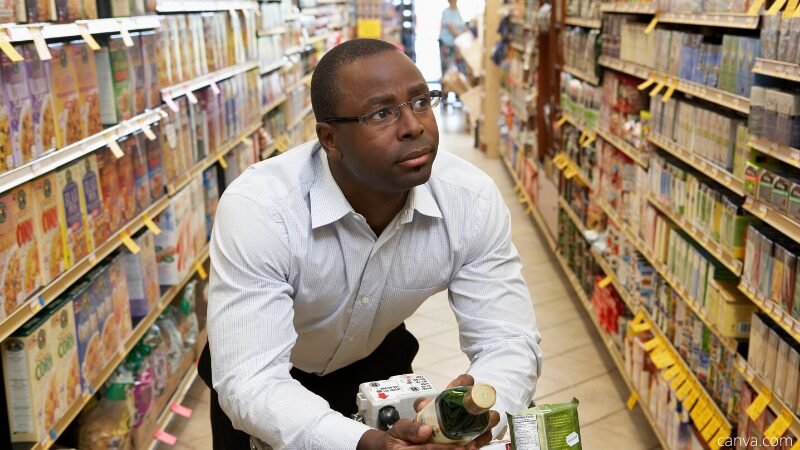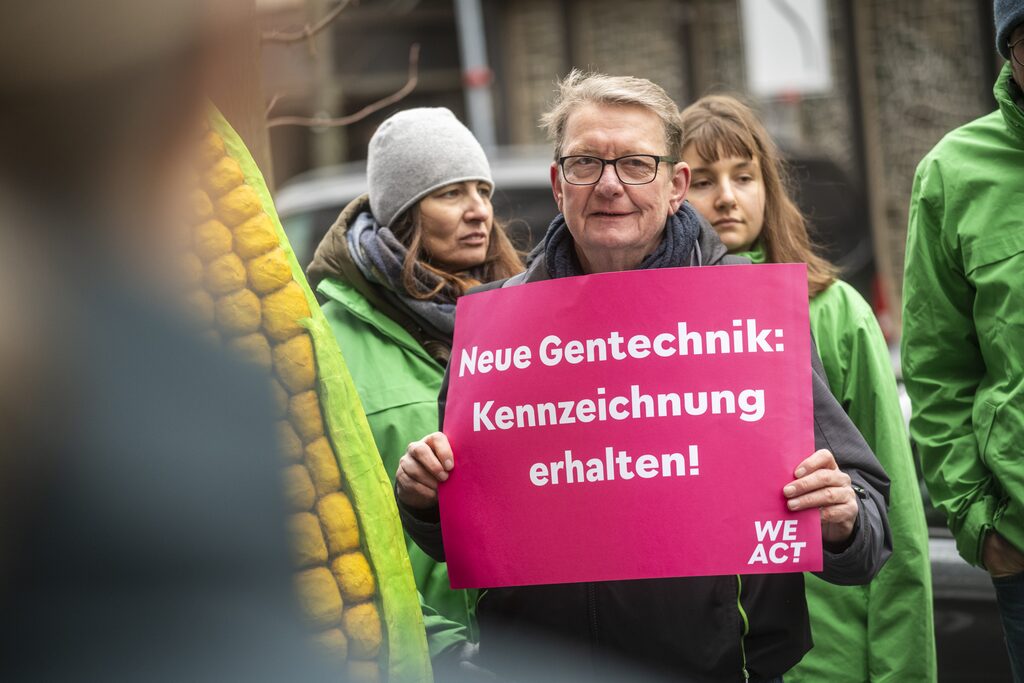As final negotiations begin on the proposed deregulation of genetically modified (GM) plants developed with new genomic techniques (NGTs), industry groups are pressuring EU decision-makers to reject mandatory on-package labelling for products containing these GMOs. Save Our Seeds urges EU decision-makers to uphold transparency and protect consumers’ fundamental right to choose what they eat.
By Franziska Achterberg, Save Our Seeds
The industry’s mask has finally slipped in the battle over the proposed deregulation of GM plants engineered with so-called “new genomic techniques” (NGT) Major chemical and biotech industries, commodity traders, seed breeders and the farmer umbrella group Copa-Cogeca have launched a full-blown attack on consumer rights. In a joint statement, they demand that EU legislators abolish a long-standing rule that all GM food must be labelled and GM plants must be traceable.
This isn’t a new demand. But so far, the industry has never made an effort to explain that, really, consumers should not concern themselves with how their food is made. When the Parliament voted in February last year to require consumer labelling of NGT products, the seed industry – the mouthpiece of the deregulation camp – said that “market labelling” was a “detail” that needed evaluation.
Now, as the trilogue marks the end game, this “detail” has turned into a major fight. With great fanfare, industry organisations are saying people should stop asking how their food was produced. They should back down on wanting to know what they’re eating.
However, in the EU, consumers have the right to “make informed choices in relation to the foods they consume”, according to the EU’s General Food Law. Trustworthy information and informed choices by consumers have been part of every EU food strategy, including the Commission’s latest “Vision for Agriculture and Food”.
With great fanfare, industry organisations are saying people should stop asking how their food was produced. They should back down on wanting to know what they’re eating.
All surveys show that people want to know about GMOs in their food, even when labelled as ‘conventional-like NGT products’ by industry advocates. Consumer groups defend those rights, notably in France and Germany.
Why would this not be possible? The industry names three main reasons:
Technical challenges. Because these GMOs are so similar to conventionally bred plants, companies claim they will not be able to verify their presence “with analytical methods.” This is true to an extent. Some GM foods engineered with CRISPR and similar methods may involve only small tweaks that are difficult to detect. But that is not a new situation. The same is true for processed products like oil from GM soy and sugar from GM sugar beet.
Consumer labelling does not depend on the availability of laboratory methods. The EU’s organic food label, the animal welfare label for eggs, and partly the GMO label all depend on documentation. Also, technical challenges in detecting GM foods can be overcome with cooperation from the respective patent-holders. Two EU research projects—DARWIN and DETECTIVE—are under way to work out relevant solutions.
Unjustified additional costs. The industry says it would have to separate GM products from non-GM ones “at each stage of the supply chain.” That is true — and exactly what is happening today. Whether it is justified depends on who you ask. The physical segregation of GM food successfully serves a market of 500 million people, who have become accustomed to their right to know.
Consumer confusion. The proposed new category of “conventional-like” GM plants could indeed confuse consumers. But why should they ignore the fact that new and unproven genetic engineering methods have been used to create their food? Why should they forget that no safety studies have been conducted on these GM plants, even though the methods (e.g., CRISPR) used to create them have been shown to produce many unintended and potentially dangerous effects?
The dispute over consumer labelling and freedom of choice goes straight to the heart of defending fundamental democratic rights, against a corporate attitude of patronising citizens.
Companies must not hide from us how they make the products we buy. It is not for them to decide what we buy, and certainly not to curtail our right to know what ends up on our plates.
In the face of this unprecedented attack on consumer rights, we call on EU decision-makers to defend our right to choose what we eat. They were elected by European citizens — not by multinationals. We are hopeful they will hear our voices.
This op-ed has also been published on Arc2020.eu
Photo ©Canva






